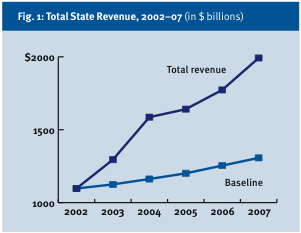So we're going to build a wall and send an army to the border.
Maintaining a military to defend a group of people against outsiders who wish to use force against them is one of the core functions of government. Even crazed libertarian anarcho-capitalists like myself concede it as a function of government. If libertarians were to have their version of the ten commandments, the only phrase that would have to be on the stone is "Thou shalt not deal with thy neighbor through force or fraud." The government maintains police and a military to handle the people who wish to violate this one commandment.
Throughout the years, countries have built armies and fortifications to defend against invaders who wanted to loot their lands, or steal their property, or impose their own version of racial or religious uniformity. The US Army itself has fought for freedom, it has fought to restore democracy and individual rights, it has fought to stop genocides.
Today, the US Army sallies forth again, to fight for and defend .... what?
It fights to stop waves of Mexican immigrants that are dangerous because they ... want to freely exchange their labor with US Citizens?
It fights to protect Americans from ... competition for unskilled labor jobs?
It valiantly rides forth to make sure Americans never face the horror of ... interacting with someone with only broken English?
The soldiers racing to the borders are not fighting for me, because I am not in danger. And neither is anyone around me here in Arizona -- no one from outside the border is threatening me with force or fraud (surprisingly frequent emailers sending me messages about Mexicans all being diseased criminals notwithstanding). Its not like I live blithely ignorant of the border area in Kansas. I life in Phoenix, and run businesses right down on the border. I don't feel a threat or danger. In fact, the only danger I see is that the army may come down and drag families who are my friends out of their homes and out of the country (or into concentration camps, as one conservative writer longed for).
Immigration opponents are sometimes a little hazy about what danger they are trying to fix. I agree there is a problem with the welfare state when it meets immigration, which I discussed here and proposed a solution for it here. Democratic politicians still are confused on this particular problem, wanting some immigration solution but refusing to consider limiting access to the welfare state. If the problem is infrastructure (police, prisons, schools, etc.) then it could be possible to provide national funds to border regions for this purpose, rather than for armies and walls (the Feds, after all, are handing out hundreds of billions to New Orleans). And if the problem is too many people who don't look like us Anglo-Saxons, well, sorry (If you don't think that this is the real issue for many anti-immigration folks, think about the recent scare headlines that soon a majority in the US may be Hispanic. Can you imagine similar anxiety over the headline "majority of US may soon be of Canadian descent"?)
Update: Nick Gillespie comments on the fact that Congress has given its official sanction to my speaking English.
Thank you, Middle Eastern 9/11 hijackers, for finally getting the point
through our thick skulls (forgive our slowness, but all too many of us are
descended from immigrants) that the greatest security threat to the United
States is the influx of Spanish speakers from across the border with Mexico.
Christ, it's bad enough that we have to eat foreign food, live in states
with Spanish-derived names, and answer that extra question about which
language to use at the ATM. (Thought experiment: How much is that extra
second or two of time slowing down the U.S. economy and driving down our
productivity, precisely at the moment when the Chinese are breathing down
our
necks like a bunch of post-industrial railroad coolies? You can be damn sure
that the Chinese government doesn't allow ATM users to pick their own
language.)
As I have written before, I have gotten more bizzaro emails on my pro-immigration stand than anything else I have written about. Gillespie apparently has had the same experience.
